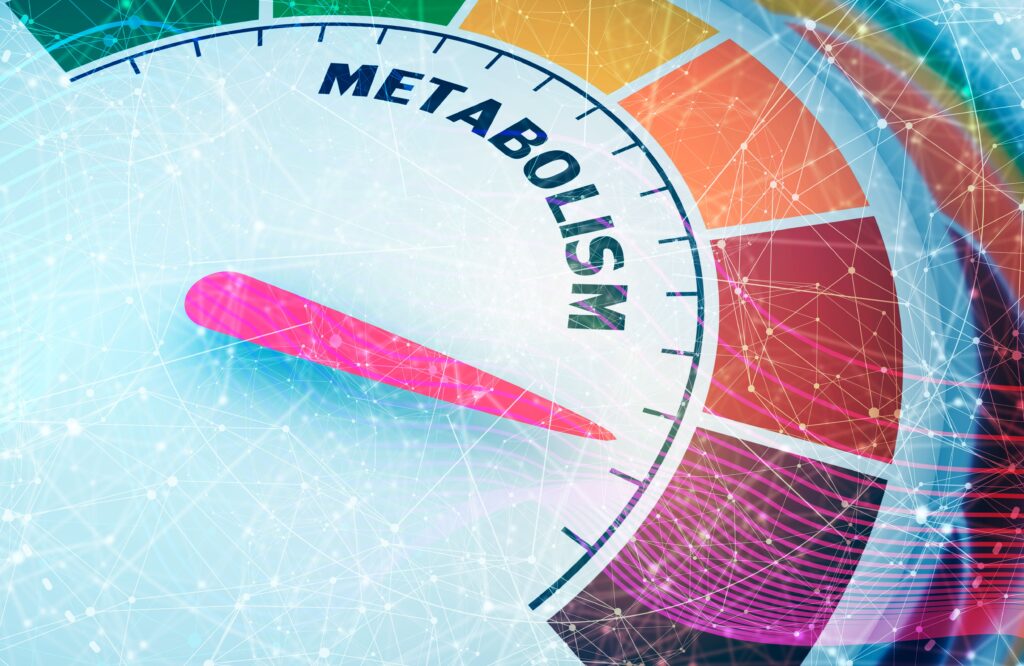How to undo the damages of dieting
What is metabolism?
Metabolism refers to the collection of complex chemical reactions that occur in our bodies 24/7 in order to keep us going. At rest, we need a baseline level of energy to maintain the normal functioning of our organs – this is known as resting metabolic rate.
Your metabolism is more dynamic than you think – it can be affected by a range of factors, from your physical activity level to the functioning of your hormones.
In this article, we’ll discuss the ways in which metabolism can be affected by dieting, and subsequent methods to help your metabolism return to a healthier level.
How is our metabolism impacted when we are in a calorie deficit?
Various studies demonstrate that when you start to restrict the number of calories you are putting into your body, your metabolism will begin to slow down over time1.
For example, imagine you are restricting your calorie intake to an amount that is smaller than your resting metabolic rate. Gradually, your body’s metabolism will begin to drop to below the number of calories you are taking in.
This is because our bodies don’t want to be burning up more energy than what we are putting in – that just wouldn’t be sustainable! Slowing down our metabolic rate means we will be able to complete the same basic functions but using less energy.
What are the long-term consequences of dieting for our metabolism?
Long-term dieting can have serious impacts on metabolism: your resting metabolic rate may remain low for up to months or even years, depending on how long you remain in a calorie deficit.
In severe calorie deficits, resting metabolic rate can become extremely low. This can put the body at risk of muscle mass depletion and even damage to organs, as it tries to break down its own tissues for energy.
It has also been found that dieting can slow gastrointestinal function, which in turn can affect the hunger signals we receive when we’ve not eaten enough, as well as causing other gut problems2.
How can I heal my metabolism?
Healing your metabolism starts from the inside out. Improving your metabolism might mean gaining weight in the process, but it’s important to know that this is okay!
We often hold on to a lot of internalised beliefs about weight and body size, mainly due to the overwhelming shame and stigma that still exists in society surrounding weight gain.
However, regardless of how many calories we supposedly ‘should’ or ‘shouldn’t’ be having, our bodies still need energy to function. Here are just a few ways you can help get your metabolism back to what it was pre-diet.
Our 3 top tips for maintaining a healthy metabolism:
One: Nourish your body with adequate nutrition
Getting your metabolism back on track means trusting your body’s natural hunger cues and honouring your own needs.
Research shows that consuming regular, balanced meals is associated with weight management and metabolic health3. To maintain an energy-efficient metabolism, your body needs an adequate supply of nutrition throughout the day.
Two: Let your body rest
Although physical activity is great for your body and your mind, overworking yourself will negatively impact on your metabolism if you are already in a calorie deficit.
Taking rest is imperative for long term health and is an important sign of a healthy relationship with exercise.
Three: Say goodbye to the dieting mindset
For centuries, diet culture has told us that in order to be ‘healthy’, we must eat certain things so we that can look a certain way. Well, we’re here to tell you this isn’t true in the slightest.
Our bodies are all beautifully unique and complex, and health doesn’t come in one shape or size. Calorie restriction holds a lot more risks than it does benefits, especially when it comes to our metabolism.
If you’re looking to ditch diet culture once and for all, you’ve come to the right place. Here at EHL we can help you to cultivate a healthier relationship with food and your body, guiding you with one-to-one coaching from our specialist dietitians. Get in touch with us today at [email protected]
EHL Team x
Robin Wileman, EHL Dietitian Student Intern
References
1 Dayan, P. H., Sforzo, G., Boisseau, N., Pereira-Lancha, L. O., & Lancha, A. H. (2019). A new clinical perspective: Treating obesity with nutritional coaching versus energy-restricted diets. Nutrition, 60, 147–151. Available at: https://doi.org/10.1016/j.nut.2018.09.027
2 Seimon, R. V., Taylor, P., Little, T. J., Noakes, M., Standfield, S., Clifton, P. M., Horowitz, M., & Feinle-Bisset, C. (2013). Effects of acute and longer-term dietary restriction on upper gut motility, hormone, appetite, and energy-intake responses to duodenal lipid in lean and obese men. The American Journal of Clinical Nutrition, 99(1), 24–34. Available at: https://doi.org/10.3945/ajcn.113.067090
3 Alhussain, M. H., Macdonald, I. A., & Taylor, M. A. (2016). Irregular meal-pattern effects on energy expenditure, metabolism, and appetite regulation: a randomized controlled trial in healthy normal-weight women. The American Journal of Clinical Nutrition, 104(1), 21–32. Available at: https://doi.org/10.3945/ajcn.115.125401













